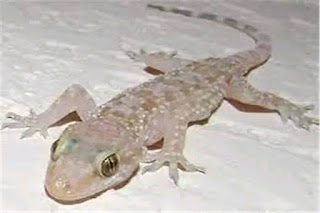Spreading terror in her Egyptian leprosy invades Israel

Spreading terror in her Egyptian leprosy invades Israel
Israeli scientists and researchers have warned that the Egyptian gecko, known as the "Gecko", could threaten the ecological balance after the reptiles invaded the Wadi Araba region in the south of the country.
Israel's Nature and Parks Department said it is asking local Wadi Araba residents for help in locating the Egyptian gecko, which has invaded the area in large numbers.
In turn, professors at Tel Aviv University explained that the Egyptian gecko can eat everything it can handle, because it is a potential threat to any organism that is smaller than it lives in its environment, and that it can seriously damage any ecosystem. .
In this context, the university professor said: "This Egyptian gecko can eat anything it can beat. For example, in North Africa, a jerboa was filmed eating."
"They also eat geckos and other arthropods and are a potential threat to smaller organisms in their habitat," he added. He added that the Egyptian vulture has also been documented eating birds, noting that it is one of the most aggressive species.
The professor explained. "The Egyptian creeper has a very strong bite and reproduces quickly in a short time." According to a newspaper report, in 2012 they found geckos on the walls of houses in the area of Kibbutz Ein Gedi on the Dead Sea. The professor said at the time that it is a very large species that can weigh up to 75. grams
After discovering it near a reserve that was home to a famous local gecko, Merry said his assessment was that the Egyptian gecko had "wiped out almost all the local geckos" and warned that it could cause serious damage to any ecosystem.
The Hebrew newspaper notes that gecko species in Israel remained unknown until 2014. But it says two Egyptian geckos have been spotted this month in the southern Wadi Araba area of Kibbutz Eliphaz.
According to a Hebrew newspaper report, the Department of Nature and Parks has been unable to determine how the species got as far as Wadi Araba, prompting it to ask local residents for help.
The Nature and Parks Department was unable to determine how the species had traveled to Wadi Araba, prompting it to seek help from local residents.
In turn, the Environmental Protection Agency issued a brief statement, which says: "If you have areas with street lights or any other type of light that attracts insects, or areas where you can see an Egyptian gecko, please take a photo of it with your phone and share it with us."




